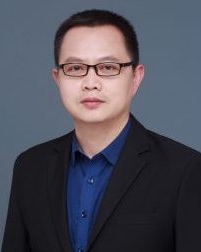April 6-8, 2026 | Suzhou, China

Gerhard P. Hancke, Professor, IEEE Life Fellow
Nanjing University of Posts and Telecommunications, China
Bio: Gerhard P. Hancke (Life Fellow, IEEE) received the B.Sc., B.Eng., and M.Eng. degrees from the University of Stellenbosch in 1970, 1970, and 1973, respectively, and the D.Eng. from the University of Pretoria in 1983, all in South Africa. He is a Professor with the College for Automation, Nanjing University of Posts and Telecommunications, China, as well as with the Department of Electrical, Electronic and Computer Engineering, University of Pretoria, South Africa. Dr. Hancke was elevated to IEEE Fellow ”for contributions to wireless sensor networks”, which became the Internet of Things. Subsequently his interest extended into the convergence of Artificial Intelligence (AI) and the Internet of Things (IoT), known as AIoT. He has been extensively involved in IEEE as a volunteer on all levels of member and technical activities. For his leadership in IEEE conferences, he received the IEEE Larry K. Wilson Award (2007) “For inspiring membership development and services as a member of several regional and technical conferences worldwide". He has wide editorial experience in IEEE journals and is currently the Editor-in-Chief of the IEEE TRANSACTIONS ON INDUSTRIAL INFORMATICS.

Yang Tang, Professor, IEEE Fellow
Eastern China University of Science and Technology, China
Bio: Tang Yang is an IEEE Fellow and has been recognized as a national high-level talent (2019), a leading scientific and technological innovation figure by the Ministry of Science and Technology, and a national high-level youth talent (2014). He is also an awardee of the Shanghai Academic Leadership Program and the Alexander von Humboldt Foundation Fellowship in Germany. His research focuses on intelligent unmanned systems, multi-agent systems, industrial intelligence, embodied intelligence, and bioinformatics. He has published over 200 papers in prestigious journals, including Naturesister journals, Automatica, and IEEE Transactions (with more than 180 papers in IEEE Transactions and CCF-A ranked publications), and has applied for/publicly disclosed/been granted more than 20 patents. He has led key projects and research initiatives under the National Key R&D Program of China and multiple key-class projects supported by the National Natural Science Foundation of China.
He serves as a Senior Field Editor for IEEE TCASI, and as an Associate Editor or Editorial Board Member for several international journals, including IEEE TNNLS, IEEE TCYB, IEEE TII, IEEE/ASME TMECH, IEEE TCDS, IEEE TETCI, IEEE SJ, EAAI (IFAC Journal), as well as domestic journals such as Scientia Sinica Informationsand Acta Automatica Sinica. In 2019, he received the First Prize of the Shanghai Natural Science Award (as the first completer).

Shihua Li, Professor, IEEE Fellow
Southeast University, China
Speech Title: Recent Advances on Disturbance Rejection Control for Robotic Systems
Abstract: For robotic systems, nonlinearities (frictions, backlash, saturation, etc.), complex internal dynamics, time-varying parameters, external disturbances and complex work tasks make control design a very challenging work. Compared with high gain control and integral control methods, disturbance estimation based control provides a different way to handle disturbance. Disturbance estimation based robust control method can effectively improve the disturbance rejection ability and ensure the robustness of closed-loop system. Some new research developments and results on this topic will be introduced. Specially we will discuss on various advanced modeling, analysis and disturbance rejection control techniques for robotic control systems with considerations of constraint safety control. Several kinds of composite control design schemes based on disturbance estimation and compensation are presented with experimental or application verification results.
Biography: Shihua Li received his bachelor, master, Ph.D. degrees all in Automatic Control from Southeast University, Nanjing, China in 1995, 1998 and 2001, respectively. Since 2001, he has been with School of Automation, Southeast University, where he is a Chief Professor, Jiangsu Specially Appointed Professor, dean of School of Automation.
He is the chairman of IEEE IES Nanjing Chapter, Fellow of IEEE, IET, AAIA and CAA. He is also the Director General of Jiangsu Association of Automation. His main research interests include modeling and nonlinear control theory with applications to mechatronic systems. He has published 3 monographs, over 300 international journal and conference papers with 37000+ citations (Google Scholar). He is one of Clarivate Analytics Highly Cited Researchers all over the world in 2017-2024. He is a winner of the 6th Nagamori Award in 2020.